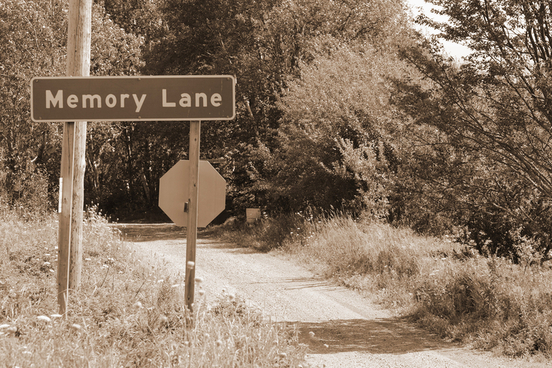
Brutalize
Definition: to treat (someone) in a very harsh and usually violent way
The most common sense in which one typically encounters brutalize today is the one which refers to treating a person or thing in a brutal manner. However, the original meaning of the word in English was “to make brutal, unfeeling, or inhuman.” The earliest use of brute in English came in the 15th century, as an adjective, with the meaning “of, relating to, or typical of animals, brutes, or beasts; not possessed of human rational powers.”
As to the conjugal pleasure, and the sport of Venus, the effects thereof are so direful and hurtful, that I wonder men will be such slaves to it; for it doth not onely invalidate and infeeble the vigour of the spirit, but render the mind base and cowardly, dull the vivacity of the understanding, brutalize the judgment, waste the memory, occasion repentance, as saith Aristotle, and as Demosthenes also in this case answered.
—Oliver Jacques, A Discourse of Women, Shewing Their Imperfections Alphabetically, 1662

Anecdote
Definition: a short story about an interesting or funny event or occurrence
The word anecdote may be traced back to the Greek anekdotos, meaning “unpublished.” It came into English in the second half of the 17th century, and initially had the meaning of “items of unpublished or secret history or biography.” When it first appeared, the word was often found used in what is the plural sense of this earlier meaning, anecdota (the current sense is pluralized as anecdotes). This was likely in reference to the title of a work by the Roman historian Procopius (Anekdota), which remained unpublished during his lifetime, as it was rife with scandalous accounts of the doings of Roman officials in Constantinople during the reign of the emperor Justinian, as well as attacks on the emperor himself.
A man disintessed either way, might make a pleasant story of the Anecdota of that Meeting, and manifest how well his Majesties Gracious Declaration, be∣fore his return, and his Broad-Seal afterwards were pursued.
—Andrew Marvell, Mr. Smirke, 1676

Handsome
Definition: having a pleasing and usually impressive or dignified appearance
Handsome is so commonly used today to refer to the pleasing physical appearance of a person that it is quite easy to overlook to way the word’s composition speaks of an entirely different early meaning. Beginning in the 15th century handsome was adopted into English with the meaning of “easy to handle or maneuver; suitable for handling.”
And therefore (for mine owne part) I vse in practising therof, to take part with them both, so farre foorth as I find it most handsome for my hand, as thus.
—John Astley, The Art of Riding, 1584

Condominium
Definition: individual ownership of a unit in a multiunit structure (as an apartment building) or on land owned in common (as a town house complex)
Condominiums have been around for over three hundred years now. This does not mean that the founders of our republic were investing in this kind of real estate, for the initial meaning of condominium was something far afield of “boxy, glass-sheathed apartment that costs a lot and does not appreciate as fast as you thought it would.” When it first began to be used in the beginning of the 18th century, condominium meant “joint dominion or sovereignty. It comes from New Latin, which formed the word by combining a prefix meaning “together” with the Latin word for “lordship” (dominium).
There are frequent Instances, that Duke Frederick, the Successor of Duke John Adolph, did acknowledge both by Words and Deed the said Condominium, both in relation to the Civil and Military Administration of the Government.
—J. Crull, Memoirs of Denmark, 1700

Sophisticated
Definition: having or showing a lot of experience and knowledge about the world and about culture, art, literature, etc.
When we think of something or someone that is sophisticated, certain things come to mind: a certain degree of worldliness, or an admirable complexity. What we do not usually think of, however, is something to which the word’s original definition could be applied: “not in a natural, pure, or original state; adulterated.” This early sense of the word began being used in the middle of the 16th century; it was over three hundred years before we began to use it to refer to worldly and educated people.
Diacridium is hoat and dry in the fourth degree, and is pressed out of an herbe to purge with all, the best is shining in substance, and blacke, there is good which is whitish, but mutch is sophisticated with spurge, Colophonie &c. but that is not good….
—William Bullein, Bulleins Bulwarke of Defence Against all Sicknesse, Soareness, and Woundes that do Dayly Assaulte Mankinde, 1562

Geek
Definition: a person who is socially awkward and unpopular : a usually intelligent person who does not fit in with other people
The most common sense of geek that we use today (similar to nerd) is a relative newcomer, with little or no written evidence of its use before the 1950s. However, the word is a bit older than that, and had a couple of meanings that are substantially different. In the early 20th century, geek was the term given to a carnival or circus performer, especially one whose act entailed biting the head off a live animal, such as a chicken or snake. Prior to this, the term existed as a slang word for a person who was regarded as a simpleton, or as foolish.
Harry Thomson. “The Mayor of the Bowery,” who is the main geek when it comes to mirth. One of the best hired men who ever worked in our fun factory.
—(advt) Trenton Evening Times (Trenton, NJ), 30 Apr. 1905

Backlog
Definition: a large number of jobs that are waiting to be finished
Backlog is also one of those words that has an extremely literal earliest sense to it, staring us in the eyes, yet which has become so overshadowed by the word’s current meaning that we miss it. The original meaning of backlog was not the work you avoided doing until it was late enough to ruin your weekend; it was, quite simply, a log in the back of the fireplace or hearth.
The Spit was carried up Chimney, and came down with the point forward, and stuck in the Back-log, and being removed by one of the Company to one side of the Chimney, was by an unseen hand thrown out at Window.
—Increase Mather, An Essay for the Recording of Illustrious Providences, 1684

Nostalgia
Definition: pleasure and sadness that is caused by remembering something from the past and wishing that you could experience it again
Nostalgia, truth be told, has not strayed as far from its original meaning as have many of the words on this list, but it still was used initially in a manner that is quite distinct from the one most often found today. The word can be traced back to a combination of Greek (nostos, “return home”) and New Latin (-algia, “pain”) roots. This etymology makes sense, in light of the initial sense of the word, which was “a severe melancholia caused by protracted absence from home or native place.” Or, if you prefer a shorter definition, “homesickness.”
Desire of being at home....where it is described, and called Nostalgia, and is frequently (he says) treated of by the Helvetian physicians, having been most observ’d in them, who are most abroad of any people; as the Jews, whilst not yet forsaken and quite abandon’d, were more than any people carried captive out of their own land.
—Jonathan Harle, An Historical Essay on the State of Physick in the Old and New Testament, 1729

Manipulate
Definition: to control or play upon by artful, unfair, or insidious means especially to one's own advantage
Manipulate has an etymological connection with words such as manufacture, manage, and manuscript; all of these words contain the Latin word for “hand” (manus) in their origin. Before manipulate meant "controlling another person through unfair means," it meant “to treat, work, or operate (something) with or as if with the hands or by mechanical means in usually a skillful and precise way.”
This sense of manipulate dates to the early 19th century. It should be noted, however, that prior to this there may be found occasional instances of manipulate being used; there does not appear to be any great semantic consistency to these uses, which are sprinkled throughout the 17th and 18th centuries.
In vain do you attack me with solliciting Eyes, in vain display your street-walking Charms manipulated by Thousands.
— The revolutions of modesty. To which is added, the reign of pleasure, 1757

Scavenger
Definition: one that scavenges, such as a garbage collector
Scavenger has been in use in English since the beginning of the 16th century. The initial sense that this word had was “a person employed to remove dirt and refuse from the streets of a municipality,” or “street cleaner.” Scavenger was formed as an alteration of the word scavager, which was the term for officers in charge of collecting the scavage (“a duty exacted in 14th, 15th, and 16th century England of nonresident merchants by mayors, sheriffs, or corporations on goods shown for sale”). In addition to collecting this duty, the officers also were responsible for keeping the streets clean.
In like maner where this scauenger sweping the stretes with his bookes (as a fitte brome and officer therto) hais spoken the truth, not trulye (bicause it is for an euil purpose, and frowardly) I shal passe ouer it with silence.
— James Pilkington, The Burnynge of Paules Church, 1563

More
Countless words have changed or even lost meanings over time. Here's 8 more.





